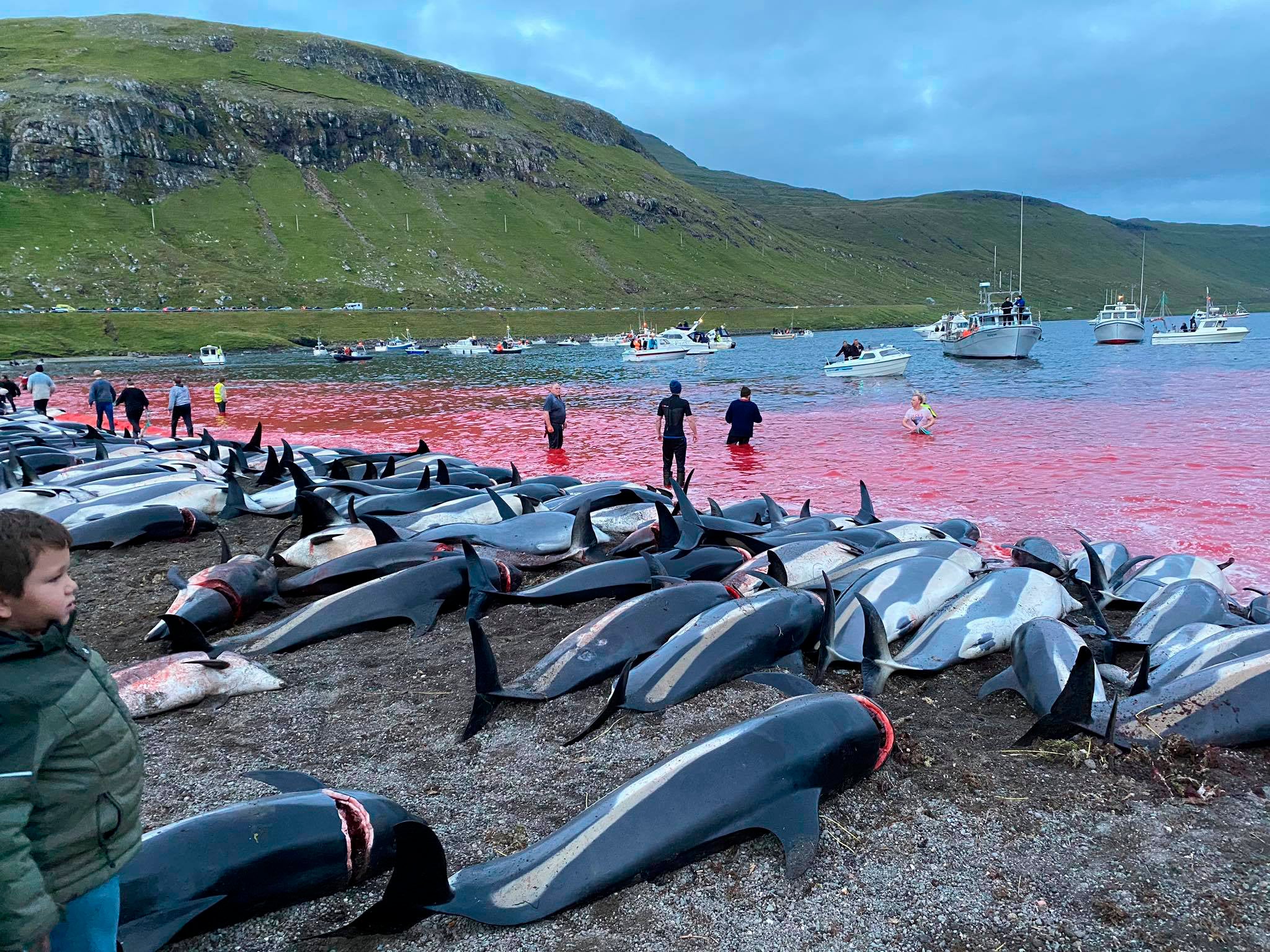Faeroese salmon exporter joins chorus, condemns dolphin hunt
One of the Faeroe Islands’ largest farmed salmon exporters is condemning a large catch of white-sided dolphins on the North Atlantic archipelago as part of the islanders’ traditional slaughter of sea mammals for their meat and blubber

One of the Faeroe Islands’ largest farmed salmon exporters has condemned the slaughter of a large number of white-sided dolphins on the North Atlantic archipelago as part of the islanders’ traditional drive of sea mammals into shallow water, where they are killed for their meat and blubber.
Bakkefrost CEO Regin Jacobsen on Thursday called Sunday's slaughter of nearly 1,500 animals “totally unacceptable,” and said it was not involved in the controversial hunt and none of its assets was used.
The condemnation is the latest critical voice on the 18 rocky islands located halfway between Scotland and Iceland over the slaughter of 1,428 white-sided dolphins on the central Faeroese island of Eysturoy. The Faeroese government has said it wants to evaluate the regulations on the catching of Atlantic white-sided dolphins.
The extent of the catch was so large — much higher than in previous years — that it appears participants may not have been able to follow regulations to minimize the suffering of the animals.
Each year, islanders drive herds of sea mammals — chiefly pilot whales — into shallow waters, where they are stabbed to death. A blow-hole hook is used to secure the beached whales and their spine and main artery leading to the brain are severed with knives, turning the water in the bay red with blood. The drives are regulated by law and the meat and blubber are shared on a community basis.
Islanders catch on average some 250 white-sided dolphins per year, and the annual catch of pilot whales averages 600, according to the Faeroese government.
The archipelago is semi-independent and part of the Danish realm.